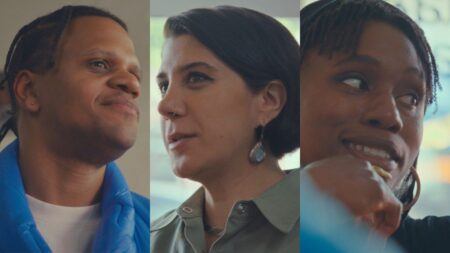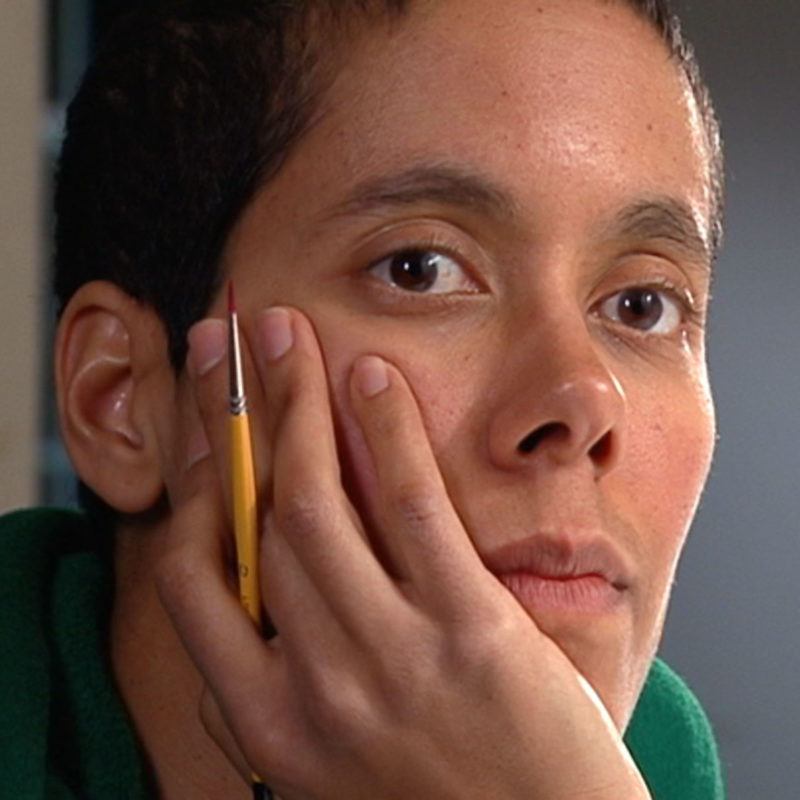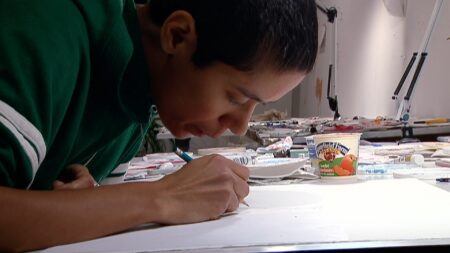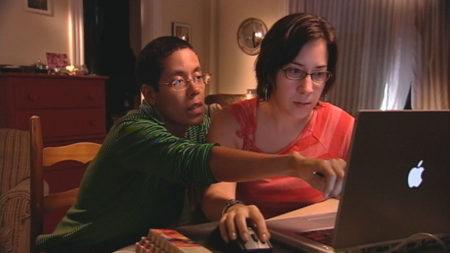Continue playing
(Time remaining: )
Play from beginning
Continue playing "{{ controller.videos[controller.getVideo(controller.currentVideo)].segmentParentTitle}}"
{{controller.videos[controller.getVideo(controller.currentVideo)].title}} has ended.
TelevisionLaylah Ali
In her Williamstown, Massachusetts studio, artist Laylah Ali describes how the television cartoons she watched as a child inform the way she works and thinks today.
Credits
Producer: Wesley Miller & Nick Ravich. Interview: Susan Sollins. Camera: Joel Shapiro. Sound: Tom Bergin. Editor: Jenny Chiurco & Mary Ann Toman. Artwork Courtesy: Laylah Ali.
Closed captionsAvailable in English, German, Romanian, Italian, Japanese, Korean, Chinese, Italian
Through the Art21 Translation Project, multilingual audiences from around the globe can contribute translations, making Art21 films more accessible worldwide.
Interested in showing this film in an exhibition or public screening? To license this video please visit Licensing & Reproduction.
Laylah Ali creates her small, figurative, gouache paintings on paper with such precision that it takes her many months to complete a single work. She meticulously plots out every aspect of her work in advance, from subject matter to choice of color and the brushes that she will use. Her paintings resemble comic-book serials, but they also contain stylistic references to hieroglyphics and American folk-art traditions. Ali often achieves a high level of emotional tension in her work as a result of juxtaposing brightly colored scenes with dark, often violent subject matter that speaks of political resistance, social relationships, and betrayal. Although Ali’s interest in representations of socio-political issues and current events drives her work, her finished paintings rarely reveal specific references.
Laylah Ali
Laylah Ali
Laylah Ali
“When I look at a Scooby-Doo cartoon, or something now, it seems really, extremely poorly drawn. But that flatness, and the way that the color played on the screen; certainly, it must be in me somehow.”
Laylah Ali
Pop Culture
Mike Kelley
Paul McCarthy
Jeff Koons



